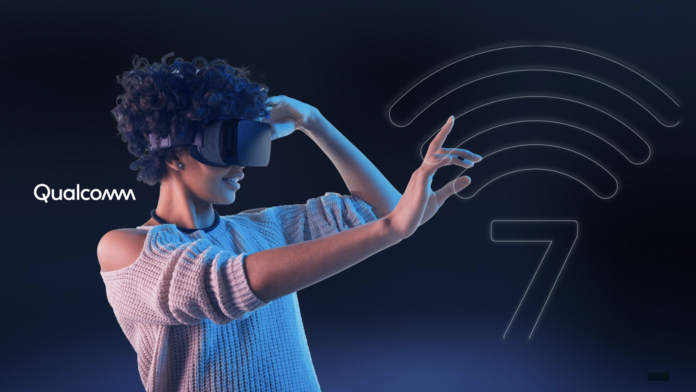‘Wi-Fi 7 matters more than any other Wi-Fi generation in the past,’ says Qualcomm exec
Qualcomm has announced two new Wi-Fi 7 partnerships: one with Charter Communications in the U.S. and another with EE in the U.K. Both service providers are working with the chip company to provide their customers with a next-generation Wi-Fi router to deliver faster connectivity, as well as advanced wireless and service management capabilities.
“The leading Wi-Fi 7 innovations from Qualcomm Technologies will enable our Advanced Wi-Fi service to continue delivering robust and responsive internet connectivity and ultra-fast Wi-Fi speeds to our customers,” said Dave Rodrian, Charter’s group vice president of Wi-Fi Products, said it a press release. And EE CEO Marc Allera commented separately that EE’s broadband customers will “be among the first globally to benefit from access to a certified next-gen Wi-Fi 7 home.”
Some of Wi-Fi 7’s most notable features include support of 320-megahertz transmissions — double the 160 megahertz of 802.11ax — and the use of higher modulation orders, optionally supporting 4096-QAM, up from 1024-QAM in 802.11ax. Wi-Fi 7 is also referred to as Wi-Fi Extremely High Throughput as result of its ability to support up to 30 Gbps throughput, roughly three times faster than Wi-Fi 6.
In addition, while Wi-Fi 6 introduced OFDMA, which is a traffic scheduling technique that results in significant speed gains in both crowded and uncrowded environments, Wi-Fi 7 has Multi-Link Operation (MLO). This feature is unique to Wi-Fi 7 and allows for the rapid switching between the different Wi-Fi bands, enabling seamless switching between the links to move critical applications to higher bands, as well as aggregate the links where and when needed.
At Qualcomm’s recent Wi-Fi 7 day in San Diego, Danny Marshall, device portfolio director at EE, spoke on a panel where he highlighted the industry’s focus on delivering an end-to-end connectivity experience for residential customers. “We can’t expect… customers will shape their homes around Wi-Fi capabilities, so what we can do is make sure that we shape Wi-Fi around people’s homes,” he said.

At the same event, Rahul Patel, Qualcomm’s senior vice president and general manager of connectivity, broadband and networking, acknowledged that Wi-Fi 7 has yet to be certified by the Wi-Fi Alliance, but that has not stopped carrier excitement around the new technology, and doing so with Qualcomm as a partner. “The larger point here… is this is a demonstration of a tremendous amount of confidence and trust by our customers in what we bring to the marketplace way ahead of certification being available to them,” he said. “Why do we want to go to Wi-Fi 7? Wi-Fi 7, in summary, matters more than any other Wi-Fi generation in the past… [It] changes the game dramatically in terms of the total experience.”
Regarding the recently revealed partnerships, Patel said that Charter and EE are “endorsing the importance of Wi-Fi and the collaboration and partnership they have with Qualcomm.”
The Wi-Fi Alliance certification of Wi-Fi 7 is expected by the first half of 2024, and both Charter and EE customers can expect Wi-Fi 7 routers to launch sometime that same year.

